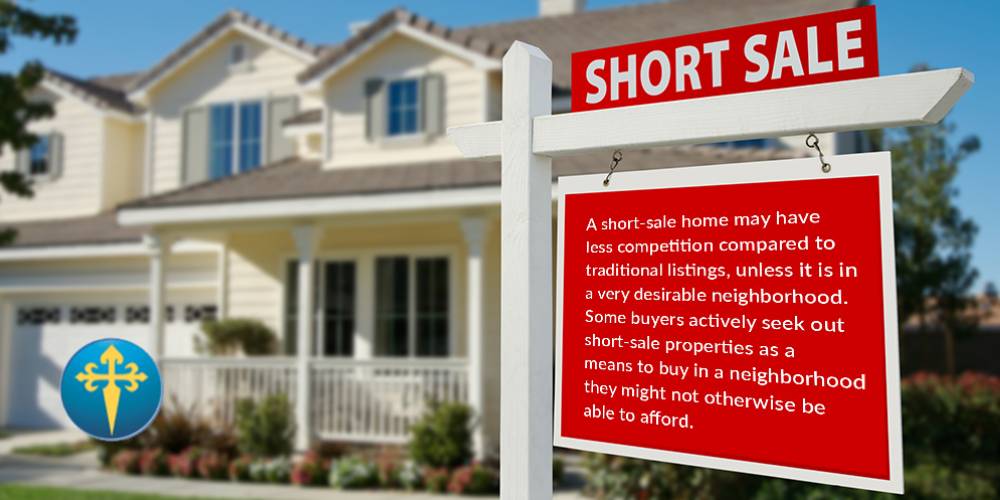Contact Our Firm
The use of the Internet or this form for communication with the firm or any individual member of the firm does not establish an attorney-client relationship. Confidential or time-sensitive information should not be sent through this form.
I have read and understand the Disclaimer and Privacy Policy.

Factors to Be Aware of If You Are Considering a Short Sale Purchase in Florida
 On the face of it, a short sale may seem like a great opportunity for a buyer. In the majority of these transactions, the seller is seeking to sell quickly – because of potential foreclosure or other debt-related issues – so the asking sale price is often much lower than it would be under a normal real estate transaction.
On the face of it, a short sale may seem like a great opportunity for a buyer. In the majority of these transactions, the seller is seeking to sell quickly – because of potential foreclosure or other debt-related issues – so the asking sale price is often much lower than it would be under a normal real estate transaction.
However, short sales can present a range of challenges and complexities for both buyers and sellers. These challenges may be financial or legal, but it is essential to fully understand all the potential problems before making an offer on a short-sale property.
You may face lender approval delays or property condition issues, but one thing is for sure: short sales are rarely as simple or as "short" as the name suggests. Some of the more common challenges are detailed below. If you are considering purchasing a home through a short sale, it is important to consult with a Fort Lauderdale, FL real estate attorney first in order to avoid these issues.
What Is a Florida Short Sale?
A Florida short sale is a process where a homeowner sells his or her property for less than the outstanding balance of the mortgage. The mortgage holder agrees to accept the lower amount as payoff, primarily to avoid the hassle and expense of foreclosure. Short sales occur when homeowners face financial hardship, are unable to meet their monthly mortgage obligation, and the value of the home has dropped below the amount owed. This is known as an "underwater" mortgage.
Why Would a Homeowner Consider a Short Sale?
The reason most homeowners would prefer a short sale to a foreclosure is that it is not nearly as devastating to their credit score. While a short sale will have an impact on a homeowner’s credit, that impact is less severe and relatively short-lived compared to a foreclosure (section 45.031). To take advantage of a short sale, the homeowner must demonstrate genuine financial hardship to the extent that it is virtually impossible to continue making mortgage payments.
The homeowner must submit a short sale package to the lender, which includes financial documentation and a hardship letter that explains the situation. The homeowner will work with a real estate agent to find a buyer whose offer is submitted to the lender for approval.
The lender will determine whether approving the short sale makes more financial sense than pursuing foreclosure. Once the lender approves the short sale, the remaining loan balance may be forgiven, or the lender can seek a deficiency judgment for the difference between the sale price and the mortgage balance.
What Are the Advantages of Buying a Short Sale Home?
The primary advantage of purchasing a short sale property is the discounted price, since short sale properties are usually priced below market value. Today’s housing market is fierce, with buyers bidding against one another, sometimes even offering more than the house is listed for. A short-sale home may have less competition compared to traditional listings, unless it is in a very desirable neighborhood. Some buyers actively seek out short-sale properties as a means to buy in a neighborhood they might not otherwise be able to afford.

What Are the Challenges of a Short Sale Purchase?
Buyers must be ready for the challenges of a short sale. Some of those challenges include:
The Process of a Short Sale Can Be Lengthy and Uncertain
If you are in a hurry to close on your new home, a short sale may not be for you. Short sales often involve multiple parties, including the seller, the buyer, the lender, and potentially other lien holders. It can be a time-consuming process to coordinate and obtain approval from all necessary parties, and delays are to be expected. The process can be frustrating for both buyers and sellers who are seeking a fast, efficient property transaction.
Lender Approval is Required and Can Take Time
In a short sale, the seller owes more on the mortgage than the property's current market value. Consequently, the lender's approval is required to accept a lower payoff amount. Lender negotiations and the decision-making process can be protracted and unpredictable, adding further uncertainty to the transaction.
Limited Inventory and Competition
Although many people shy away from short sales, if the home is in a very desirable neighborhood and is selling for significantly below market value, it can attract many interested buyers. This high demand can result in increased competition and multiple offers, making it challenging for buyers to secure a successful bid.
Property Condition and Maintenance
In some cases, short-sale properties have been neglected or subjected to deferred maintenance due to the seller's financial hardship. Buyers need to carefully assess the condition of the property, as they typically purchase it "as-is." Unforeseen repair costs can add financial burdens to buyers, affecting their budget and ability to finalize the sale.
Seller Financial Hardship
Short sales arise from the seller's financial distress, such as job loss, mortgage default, or an inability to meet loan obligations. This can create complications during the transaction, as the seller may have limited resources to address contingencies or necessary repairs, further impacting the buyer's experience.
Additional Liens and Encumbrances
Short-sale properties may have other liens or encumbrances, such as tax liens, judgments, or additional mortgages. Resolving these additional debts and ensuring that the property is free of encumbrances can prolong the transaction and complicate the closing process.
Potential for Failed Transactions
The complexities and uncertainties surrounding short sales can increase the likelihood of failed transactions. If you have your heart set on buying a short-sale property, you may end up disappointed. After investing time and effort, some buyers may find that their offer is ultimately rejected by the lender or that the transaction falls through due to unforeseen issues.
Limited Negotiating Power
Buyers in short sales often have limited negotiating power compared to traditional real estate transactions. The lender's approval is crucial, and they dictate the terms of the sale. This can restrict the buyer's ability to negotiate on price, repairs, or other contingencies.
Contact a Broward County, FL Real Estate Lawyer
If you are considering a short-sale property, it can be helpful to obtain pre-approval for financing, order a professional inspection, work with a realtor who specializes in short sales, and hire an Oakland Park, FL short-sale attorney from The Elliot Legal Group, P.A. to guide you through the process.
Navigating a short sale requires patience, due diligence, and having the best real estate lawyer to ensure you are protected from potential financial and legal problems. Attorney Elliot also practices international business law and is a licensed solicitor in England and Wales. Call 754-332-2101 to schedule your initial attorney consultation.















